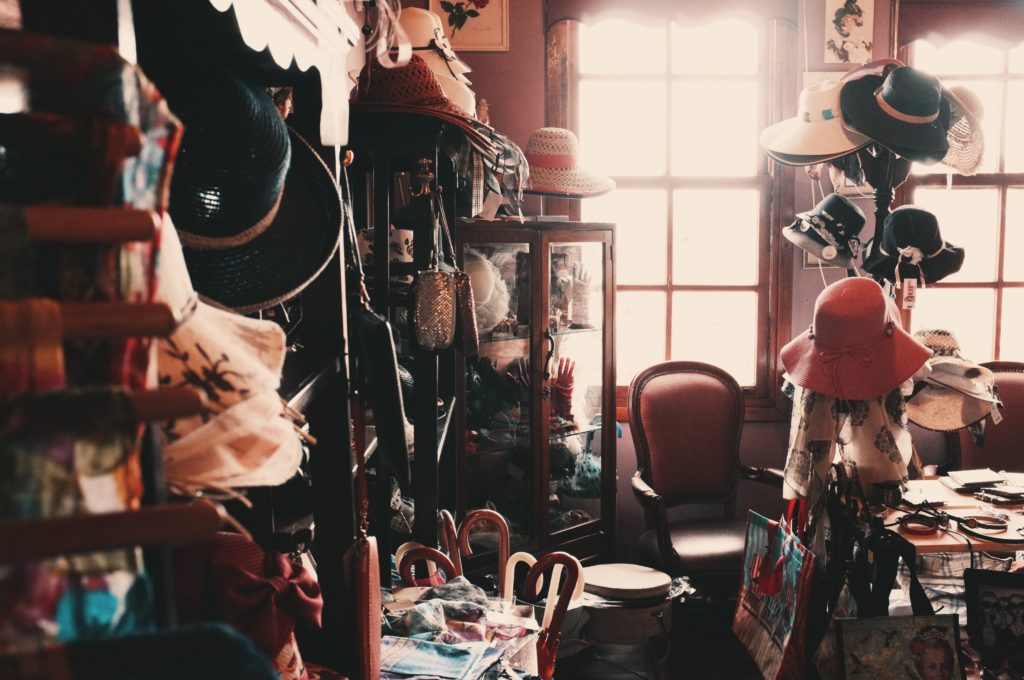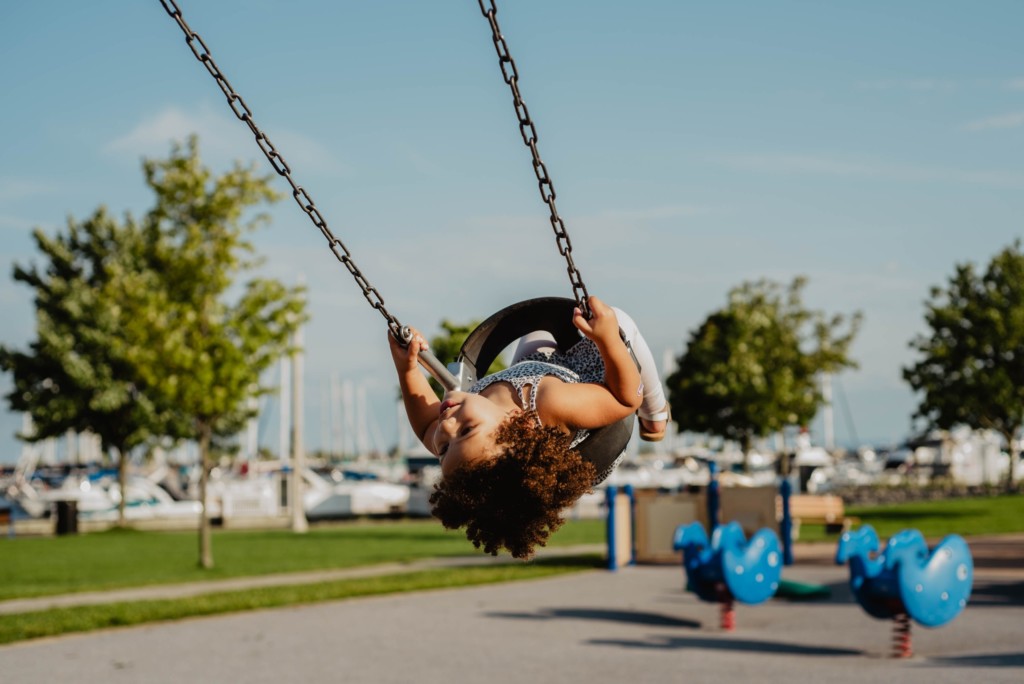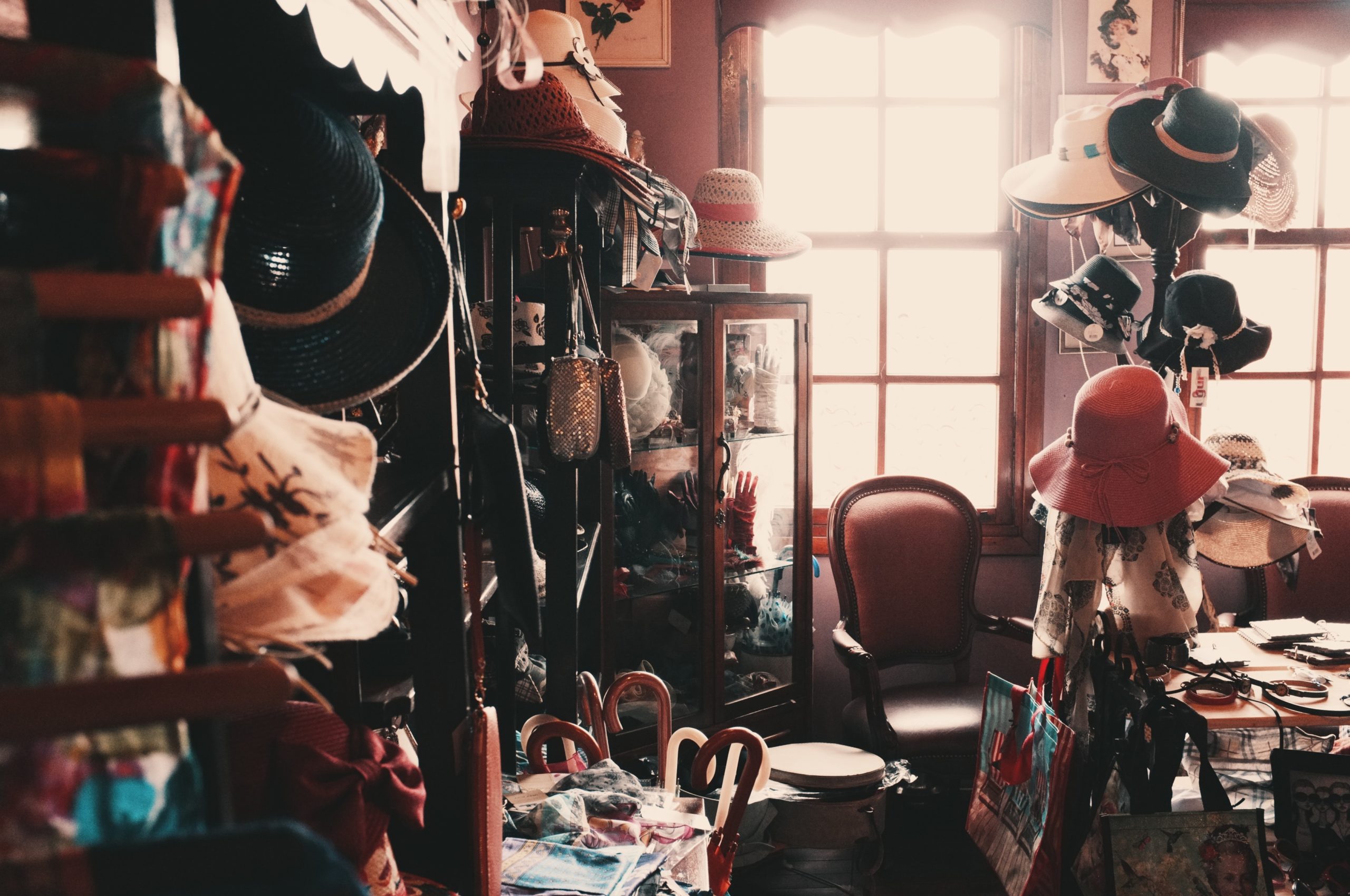
It’s that time of year when many families spring clean. But what happens when your family doesn’t clean out their house …for 38 years?
My husband and sister-in-law recently decided to sell their parents’ house, the same house they grew up in from birth to adulthood. It was a difficult decision, but the right one. However, it has come with a lot of work because in the 38 years the house has been in their family, no one has cleaned out its clutter.
After growing up in working poor families, my father- and mother-in-law enjoyed a comfortable adulthood. They were generous with my husband and his sister: Christmas and birthdays came with lots of gifts. They dressed their kids in stylish clothing and purchased lots of sports and hobby supplies so my husband and his sister could pursue their interests well-equipped. They treated themselves to clothing, jewelry, electronics, pretty home decor and all the modern gadgets that make suburban home life easy.
But when their things outlived their usefulness or current trends, they didn’t sell, donate, or throw them away. Instead, they bought storage boxes. And closet organizers. Extra cabinets and dressers. Basement shelving. A backyard shed. Eventually, the garage was so full they simply parked their cars in the driveway.
Now, my father-in-law has passed away and my mother-in-law resides in a nursing home. With no one living at the house, it’s time to sell. But all those things must be dealt with first.
We started the purge by clearing out the attic. Box by box, we carried down the detritus and family memories of three generations. We found my father-in-law’s precious baby blankets and toys from the 1940s. We discovered my husband’s entire layette from when he was a baby and toddler, plus all the bedding from his crib. We found my sister-in-law’s wardrobe from infancy through elementary school as well. While we carried down more stuff, our kids enjoyed playing with every toy my husband and his sister collected during their childhood: Barbies, action figures, play money sets, stuffed animals, pogs, board games (some still wrapped in plastic), Duplos and Legos, puzzles and more. We sorted through dozens of children’s and young adult books. It was a fun, nostalgic, long time of reminiscing.
We unboxed travel brochures from the early 90s and accounting papers from the 1970s. We browsed (and tossed) notebooks and homework assignments from my husband and sister-in-law’s elementary, middle and high school years. I drove multiple carloads of clothing and collectibles that belonged to my husband’s grandparents and parents, plus half a dozen suitcases and several boxes of home decor to Goodwill.
Once we sorted through those memories and saved what we wanted, it was time to clean out the main levels.
We filled two 30-yard dumpsters with old furniture, multiple dish sets, dozens of half-empty bottles of household cleaners, alcohol bottles dating back to 1983, cordless phones and bases, hundreds of knickknacks, a set of 1992 World Book Encyclopedias, mattresses, broken kitchen appliances, canned vegetables dating back to 2001, chewed-up pet toys, stuffed animals won from Six Flags, and enough Christmas decorations to populate the shelves of your average Target.
Among our more unusual finds, we discovered a vintage hair dryer kit with hose and cap still neatly packed in a hatbox case and the casts worn by my husband and sister-in-law when they each broke an arm during childhood. The signatures decorating the plaster were blurred but still legible.
I asked my husband why his parents never got rid of anything. Why hang on to everything you own, even if you’re not using it anymore? His best guess was that when you grow up poor and can afford a more comfortable adulthood, you’re hesitant to give away or sell what you’ve worked hard to enjoy—and my in-laws did work hard to earn their lifestyle. They took advantage of education options beyond what was available to their parents before leaving their small town to chase better job opportunities in big city of Atlanta. My father-in-law built a successful business while my mother-in-law stayed home with the kids and maintained an inviting home for her family.
Unfortunately, he died suddenly a few months after retiring, and she developed a condition that requires round-the-clock care. They’re not able to enjoy all the items they collected. Nor do my husband and his sister want most of their parents’ treasures. The mass of things we’re confronting now seems like a waste.
It has been satisfying to see our progress as the weekends go by, but it has also been frustrating. Because we all have jobs, we spend weekends on this project, and it’s not our first choice for weekend fun. We’ve given up the opportunity to do other things as a family when we clean out the house instead. It’s something we need to do to benefit my mother-in-law’s finances and because it’s better to clean, fix and sell the house now rather than a year or more down the road when it could fall into more disrepair. However, my husband and his sister are not only cleaning out everyday household things, but sorting through and paring down four decades of memories that their parents are no longer around to cherish with them one last time. Cleaning out so many sentimental items has been a Herculean physical and emotional task that most adult children don’t have to deal with because their parents do the work of downsizing before leaving this earth.
To be clear, I respect and love my in-laws. They raised the man I love. They laid a foundation of hard work and unconditional love that our little family now stands on. But their tendency to hoard combined with their involuntary fates feels like an abdication of parental responsibility to not make your children clean up your messes. The situation has made me ask myself: Whose responsibility would cleaning out MY life be if I were to suddenly pass away? Right now, that task would probably fall to my husband, my parents, maybe some friends. But in the far away future (that will probably pass in the blink of an eye), my children would likely handle my estate. Including my things.
It’s often said that the most important things in life aren’t things. After helping to clean out my in-laws’ abundance of stuff, I’ve realized that I don’t want to leave this same burden to my children when my time is up. I shouldn’t cause them to spend money on a dumpster or gas for their car to haul my junk to a donation center or landfill. I definitely don’t want them trading in precious time they could be spending with their future families, working on their life goals, or simply spending at leisure to pick through my possessions.
So I’ve been decluttering our house, too. Old clothes are going to friends, consignment sales or donation centers. Kitchen items we no longer use are being offered up on Next Door and our local Buy Nothing group. Toys my child has outgrown are being passed down to younger friends. Books we’ve grown tired of are going to Little Free Libraries. Mementos that were once important but have since been supplanted by newer, even more precious keepsakes are going in the trash or donation pile.
It’s not easy-breezy to clear out those tangible memories, and I haven’t been able to force myself to get rid of everything just taking up space in our basement. But, I’m trying to remember that I don’t want our possessions to dictate our house, or my kids’ future time. Although I don’t practice Shintoism, I admit that a few times, I’ve taken a cue from Marie Kondo and thanked a keepsake before letting it go. That does make me feel better about getting rid of perfectly useful, pretty items.
I don’t feel like a better person than my in-laws because I’m doing what they couldn’t bring themselves to do. But I do feel like I’m re-centering myself and our family around the activities we enjoy and the goals we want to accomplish.
I’ve also realized I don’t want to spend time, money and effort curating more stuff than I can reasonably use. You can’t take your stuff with you when you die, so why hoard it? Unwrap that board game and play it now. Listen to that old record or CD while it’s still fun. Eat off the wedding china for birthdays, holidays, when my child comes home with a good grade, or just because it’s been a rough week and we could use some beauty to lift up our spirits.
In addition, the unfortunate way my in-laws’ twilight years have unfolded and ended has taught me to value stuff less and experiences more. Don’t just look at travel brochures; take that trip. Don’t just read about a skill or hobby in the encyclopedia (or, let’s bring it into 2020, online); take a class or practice on your own. Maybe pick up or create a souvenir from an event or vacation, but when time and newer, even more memorable experiences have put some distance between me and that tchotchke, let it go.
And instead of indulging my kids in yet another toy they’ll play with for a week, I’ll use my money to take them to the beach, to a Braves game, to a hike up Stone Mountain, to summer camp. I’ll take them to a thousand places that expand their minds while encouraging them to strike out on their own and build a life they will be proud of, just like their grandparents did.
Meanwhile, I won’t hang onto things just to have them, so that when they come home, it’s not to a mountain of things nobody wants. I hope that’s a gift they’ll appreciate someday.


















